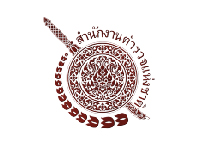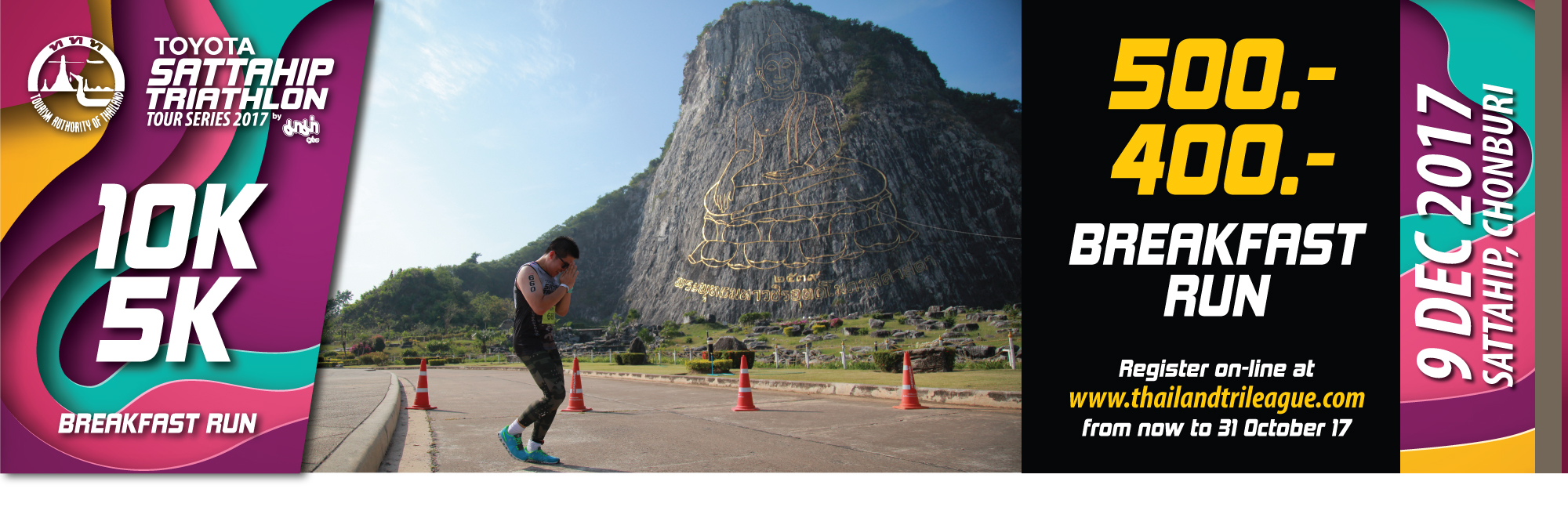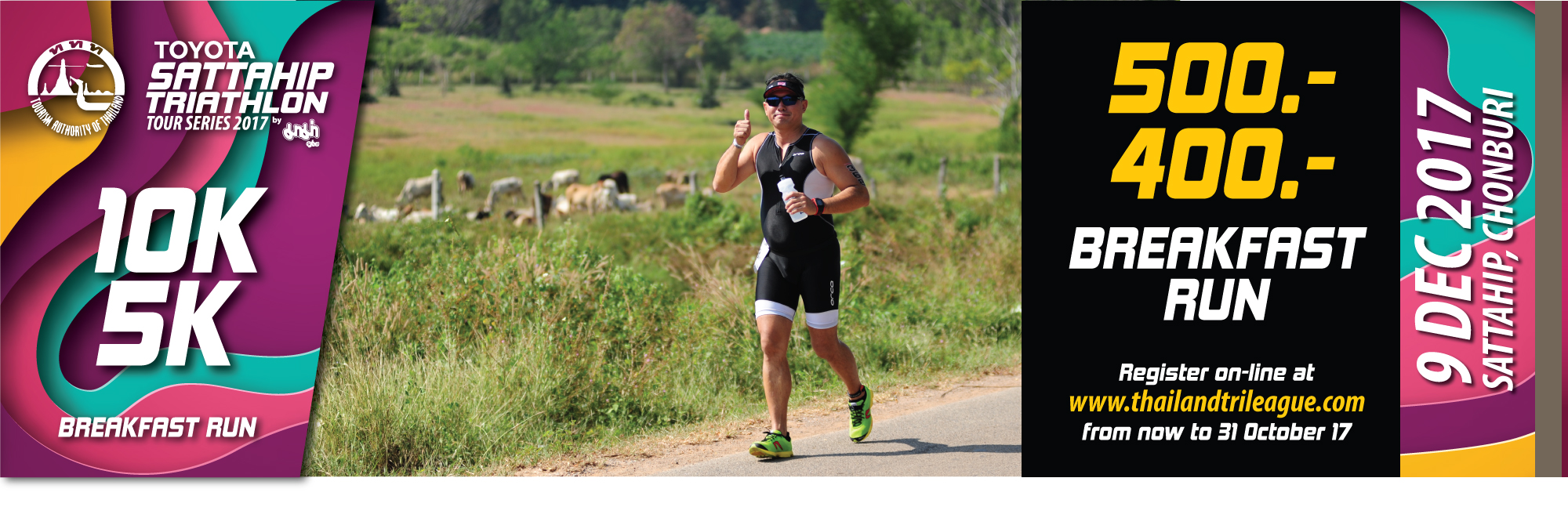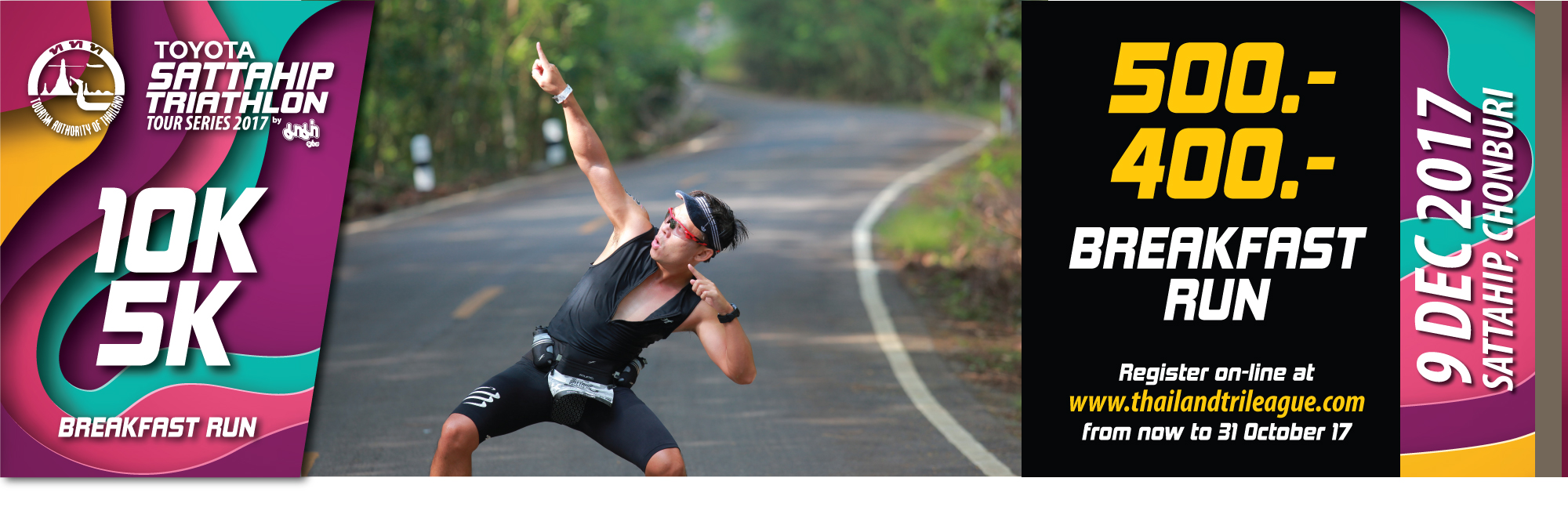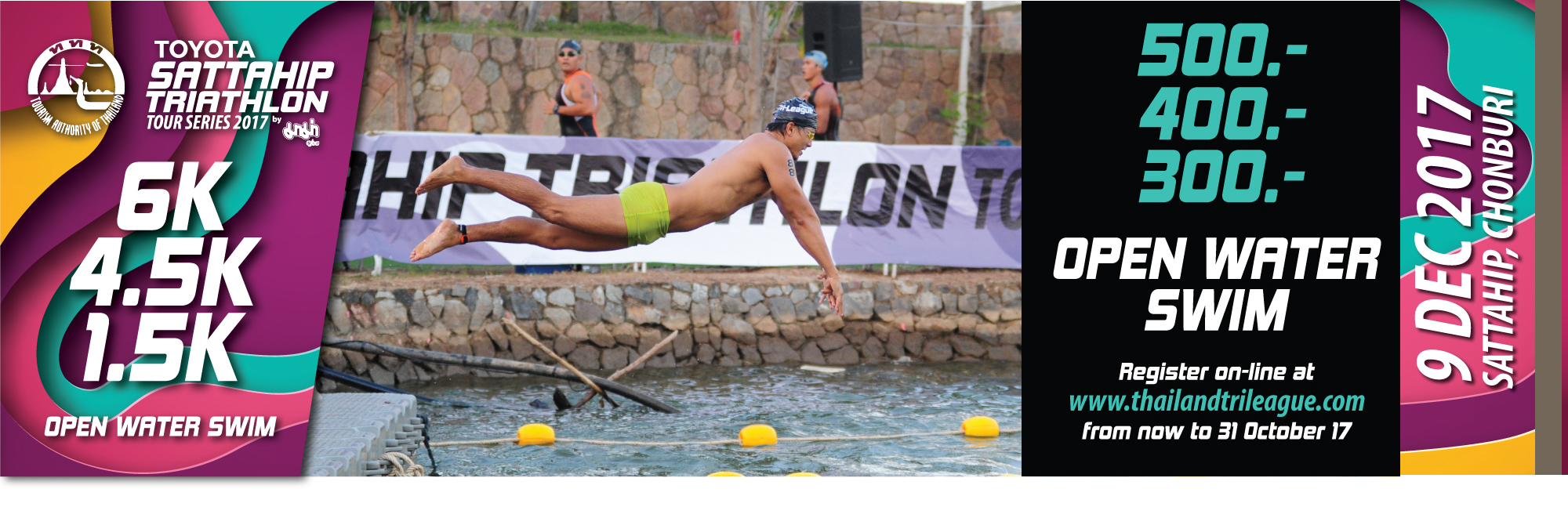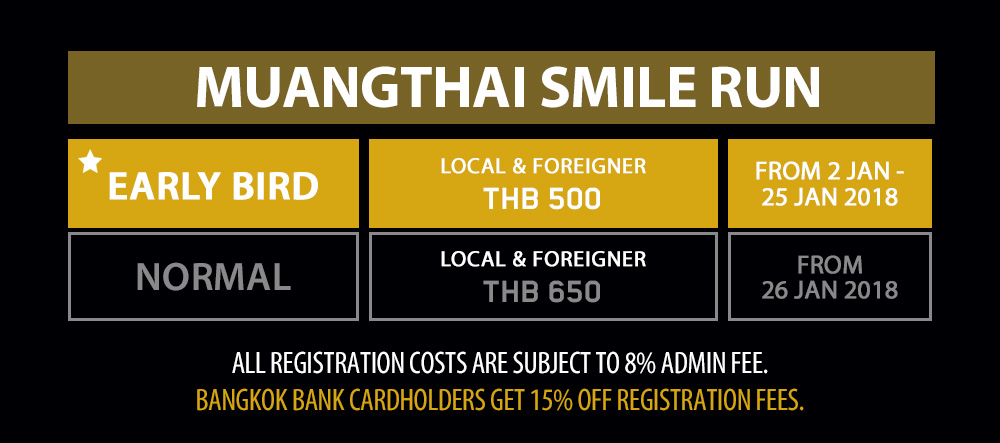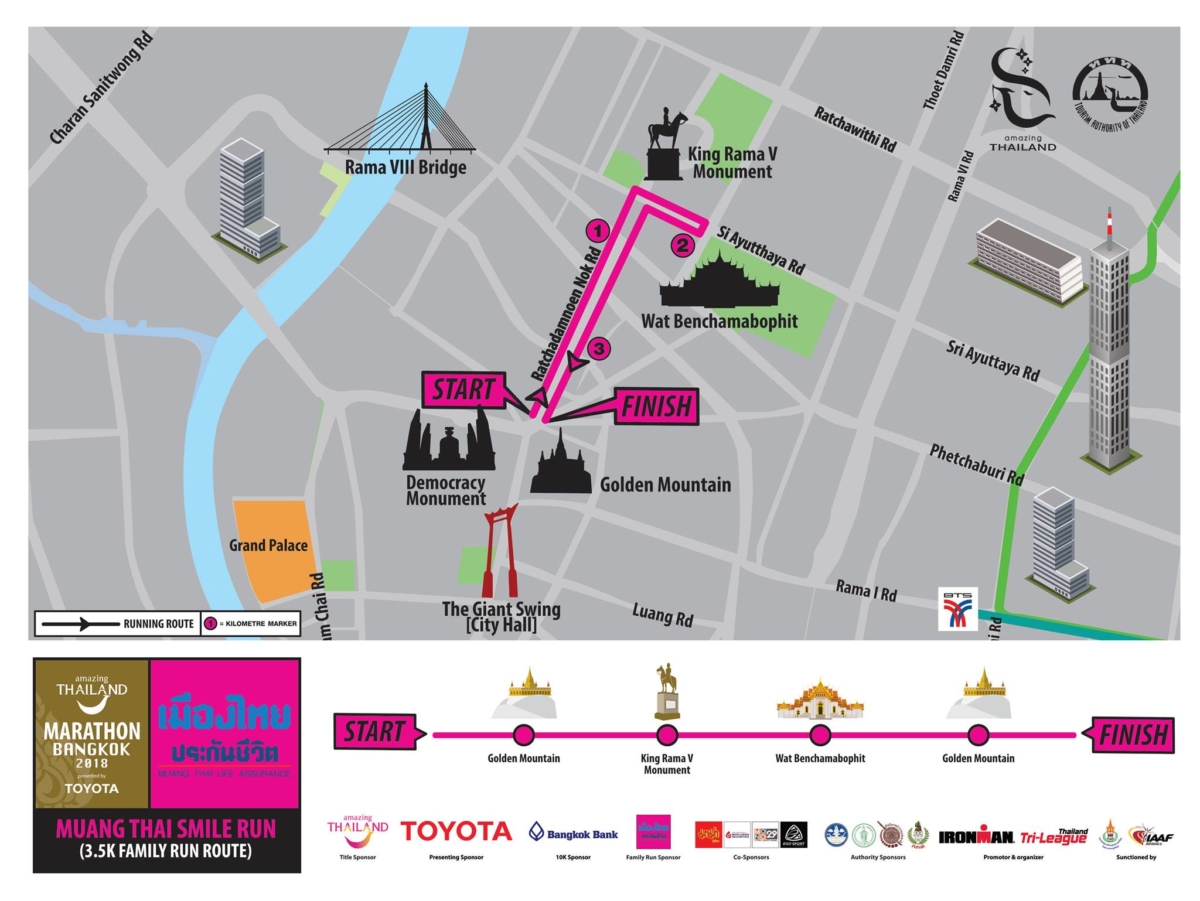
- MARATHON
- HALF MARATHON
- BANGKOK BANK 10KM
- MUANG THAI SMILE RUN
- REGISTRATION
- RACE ENTRY PACK COLLECTION
- PRIZE MONEY
- PLAN YOUR RACE
- SPONSORS
Marathon (42.195km) – 4 February at 3.00am Start from Rajamangala Stadium Finish at Democracy Monument Cut-off time: 7 hours
Free shuttle service from Bangkok Airport Rail Link to Rajamangala Stadium from midnight till 2.30am.
The marathon is a considerable distance and should only be taken up by runners who are committed to several months of dedicated training. Individuals who are new to the sport of running may wish to start with a shorter distance and then move up to a marathon once confident they can safely complete the 42.195km.
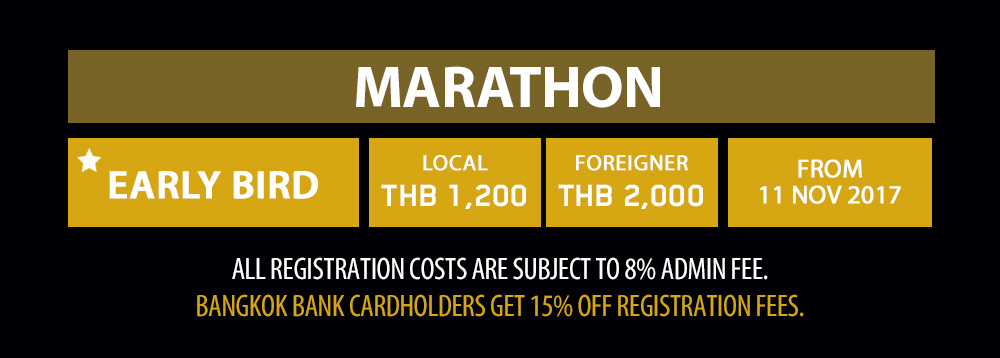
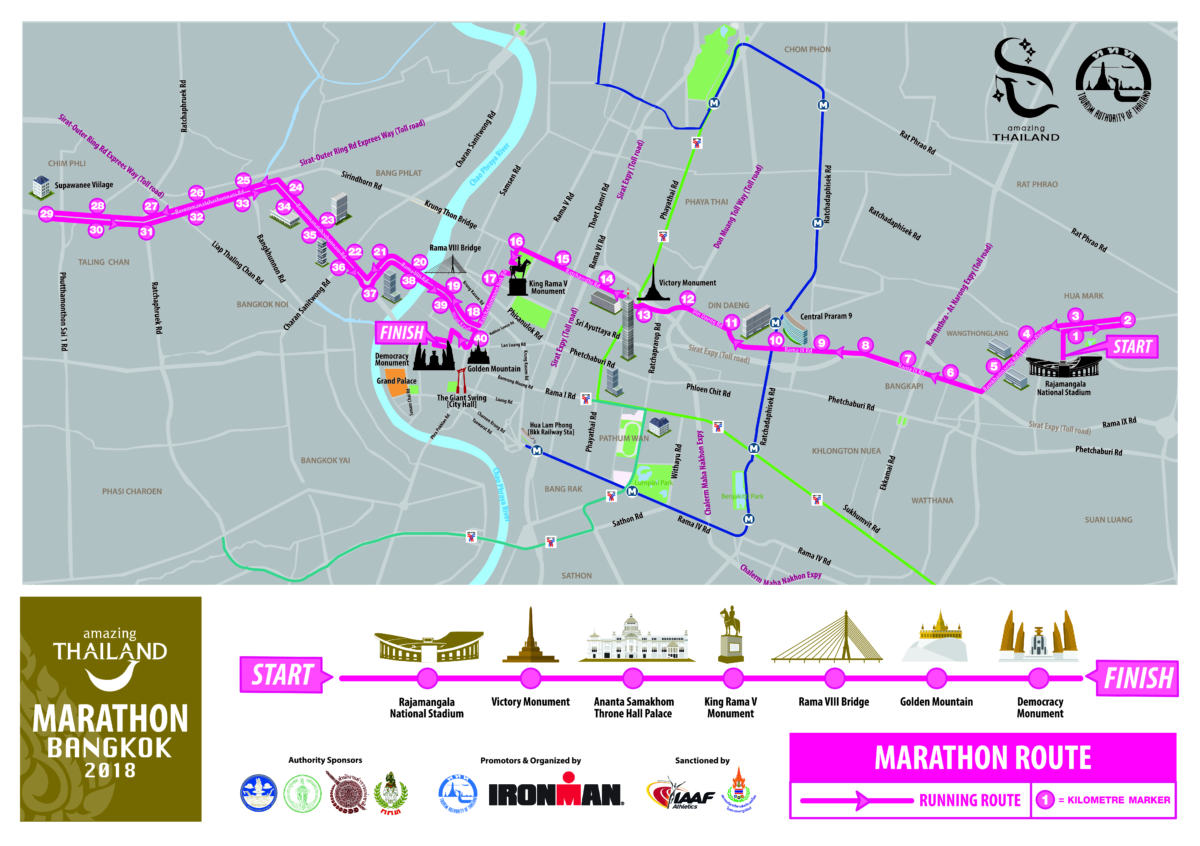
A marathon is one of the most challenging physical activities one can choose to participate in, providing extreme mental and physical challenges throughout the 42.195km. Crossing the marathon finish line is undoubtedly one of the most rewarding personal experiences an athlete can enjoy.
Half-Marathon (21.1km) – 4 February at 5.00am Start from Golden Mountain Finish at Democracy Monument Cut-off time: 4 hours
Free shuttle service between Bangkok Airport Rail Link and Golden Mountain from 2.30am till 11.30am.
The 21.1km still requires a serious level of training, however, and brings with it its own set of challenges. Many runners use the half marathon as a stepping stone towards the marathon but it’s a very challenging run in its own right. Some of the world’s best long distance runners focus their careers on the half marathon and are able to set some incredible average speeds in this category. The half marathon is a perfect run for those looking to step up from the 10km and test the long distance discipline.
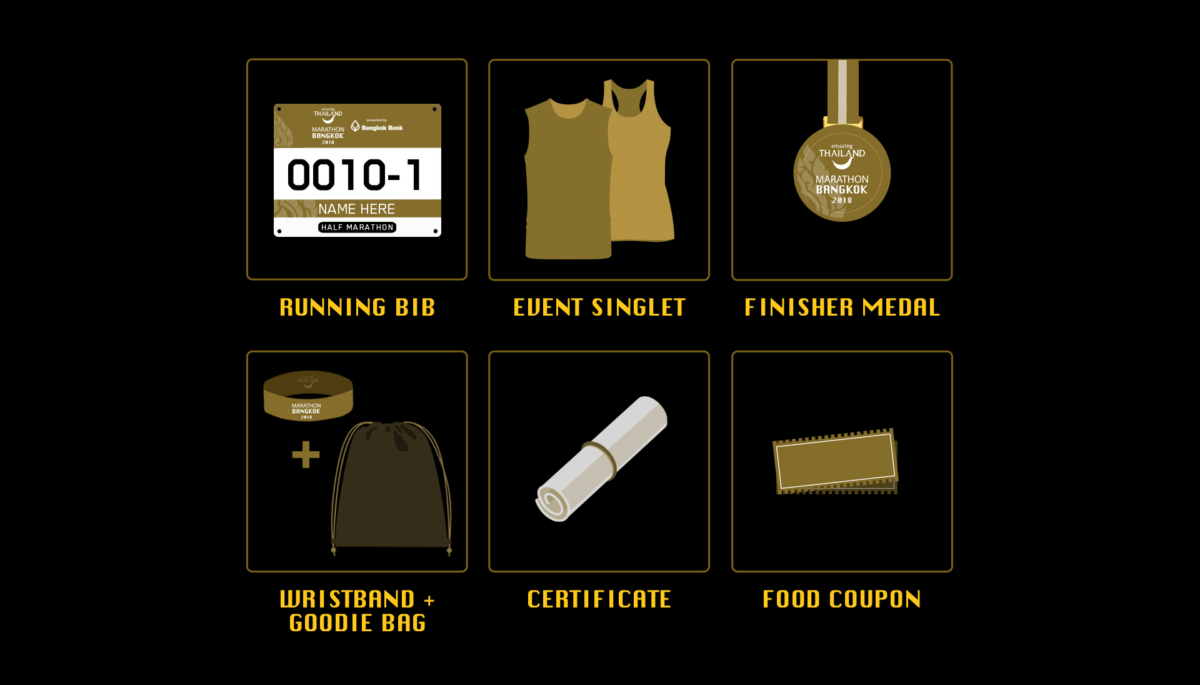
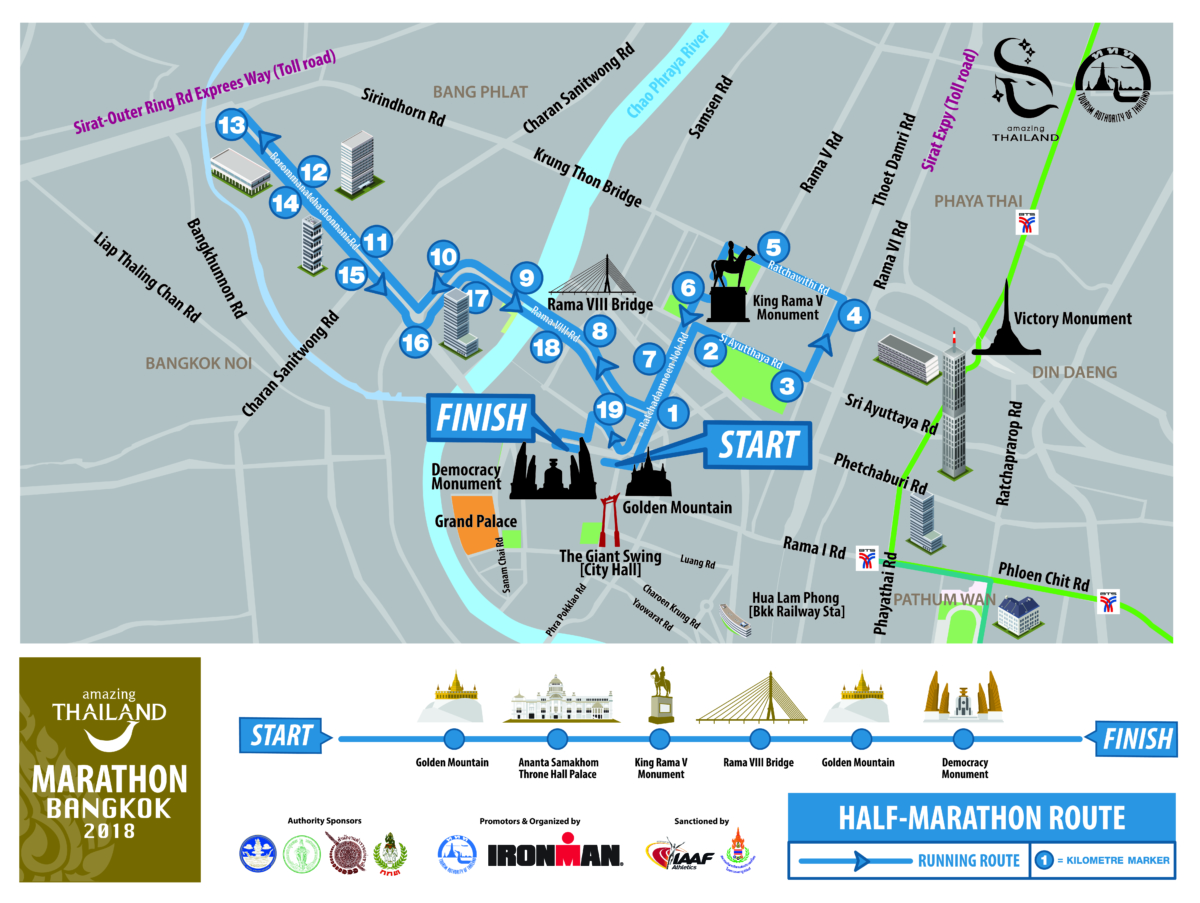
The half marathon has a wider appeal than its marathon older brother, and is viewed as a more achievable feat by non-elite or serious runners. Whether you are running for a Personal Best or taking the 21.1km challenge as a step towards a full marathon, it will definitely be an achievement to be remembered.
BANGKOK BANK 10 KM – 4 February at 6.00am Start from Golden Mountain Finish at Democracy Monument Cut-off time: 2 hours
Free shuttle service between Bangkok Airport Rail Link and Golden Mountain from 2.30am till 11.30am.
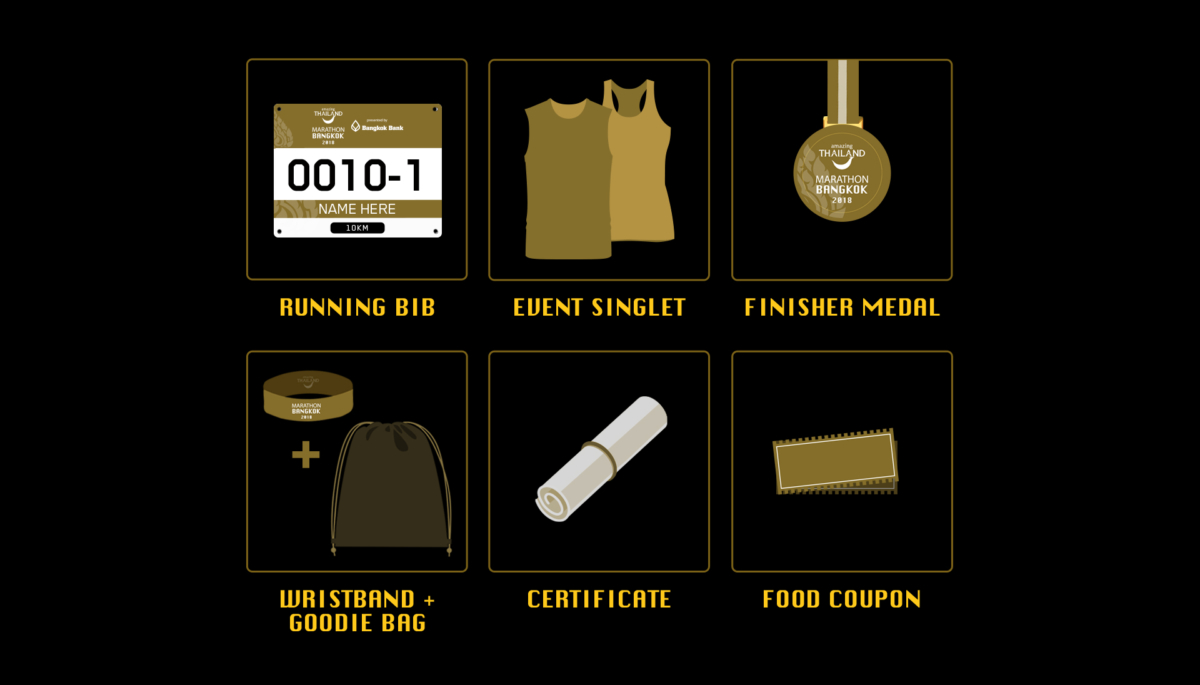
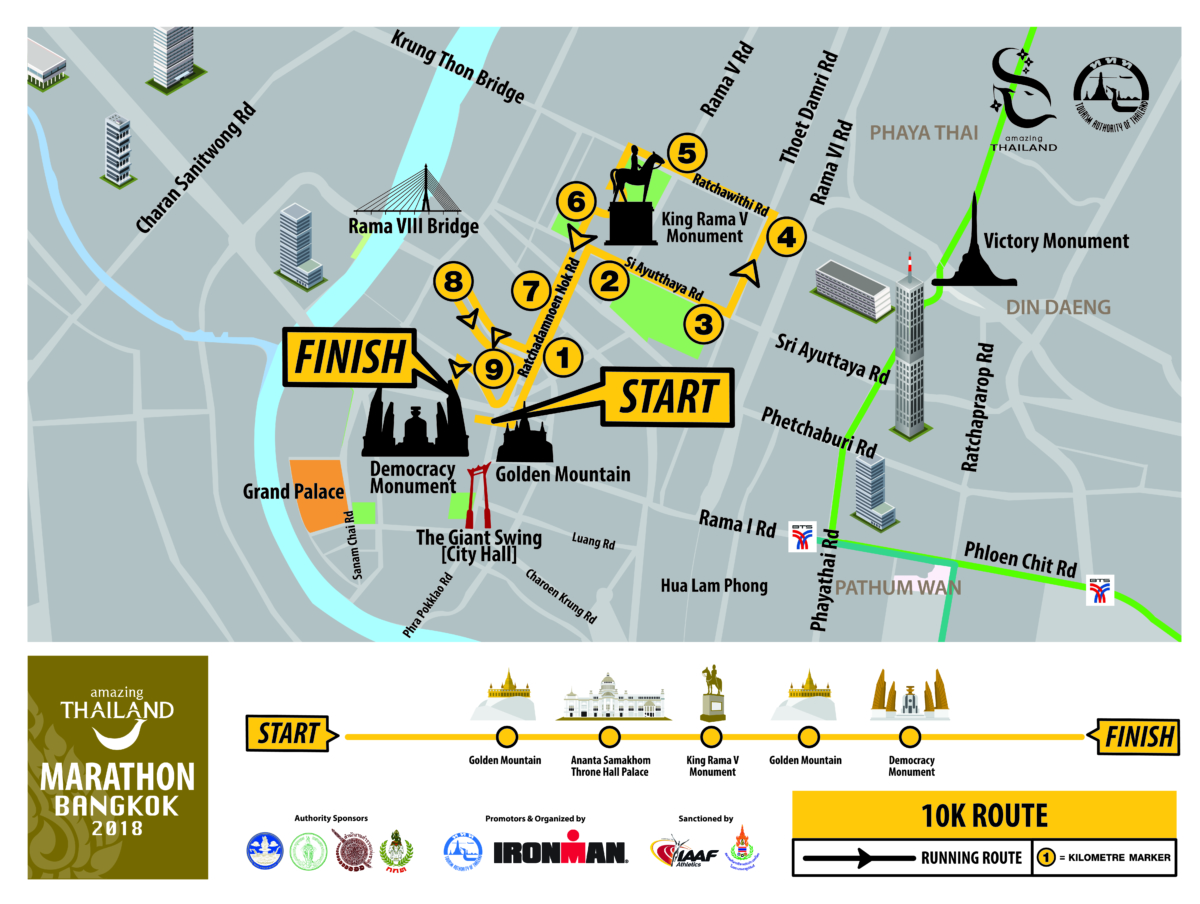
The 10km is a category where runners of all abilities will rub shoulders. The distance is perfect for beginners, even though it also requires a decent training commitment for those new to the sport. It can also be a challenge of speed for the seasoned runners.
Muang Thai Smile Run (3.5 km) 4 February at 6.30-6.45 Start at Ratchadamnoen Road
This category is open to all runners aged 5 years old and above. Run with your little ones and don’t miss the fun! The Muang Thai Smile Run is a non-competitive running event, that’s why it will not be timed.
Muang Thai Smile Run will be the perfect opportunity for runners to share the road with their little ones on a 3.5km route packed with entertainment on Ratchadamnoen Road
Marathon (42.195km)
A marathon is one of the most challenging physical activities one can choose to participate in, providing extreme mental and physical challenges throughout the 42.195km. Overcoming these challenges and then completing the run makes it all worthwhile. Crossing the marathon finish line is undoubtedly one of the most rewarding personal experiences an athlete can enjoy.
The marathon is a considerable distance and should only be taken up by runners who are committed to several months of dedicated training. Individuals who are new to the sport of running may wish to start with a shorter distance and then move up to a marathon once confident they can safely complete the 42.195km.
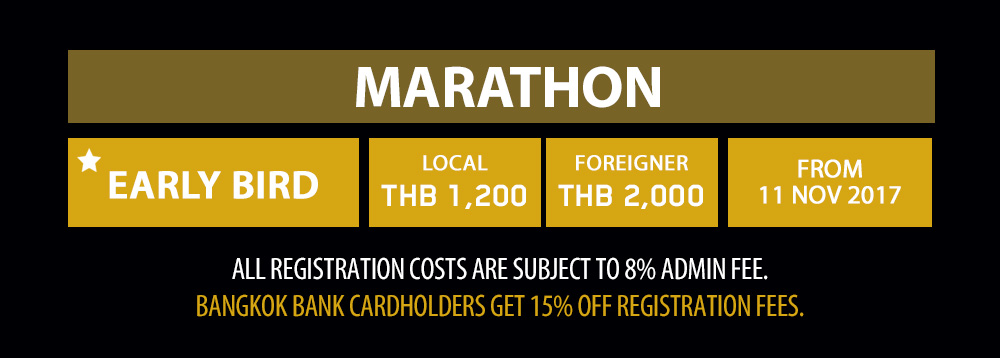
Half Marathon (21.1km)
The half marathon has a wider appeal than its Marathon older brother, and is viewed as a more achievable feat by non-elite or serious runners.
The 21.1km still requires a serious level of training, however, and brings with it its own set of challenges. Many runners use the half marathon as a stepping stone towards the marathon but it’s a very challenging run in its own right. Some of the world’s best long distance runners focus their careers on the half marathon and are able to set some incredible average speeds in this category. The half marathon is a perfect run for those looking to step up from the 10km and test the long distance discipline.
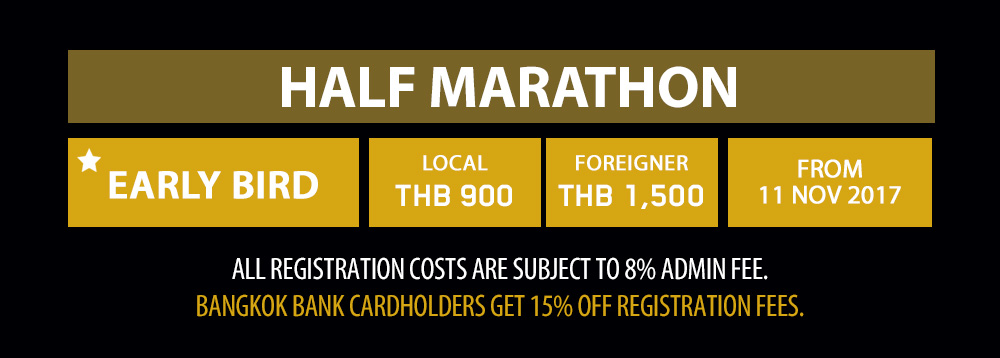
10 KM
The 10km is a category for runners of all abilities. The distance is perfect for beginners, though once again it also requires a decent training commitment for those new to the sport. The more serious runners view this category as almost a ‘sprint’.
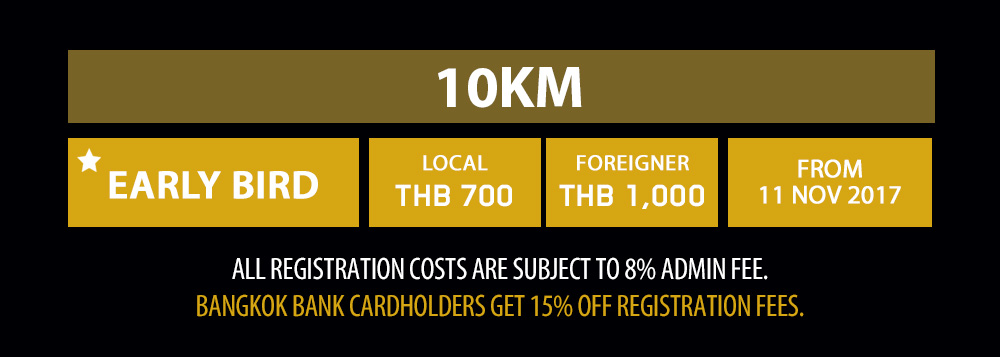
MuangThai Smile Run
This category is open to all runners aged 5 years old and above. Run with your little ones and you don’t miss the fun! The MuangThai Smile Run is a non-competitive running event, that’s why it will not be timed.
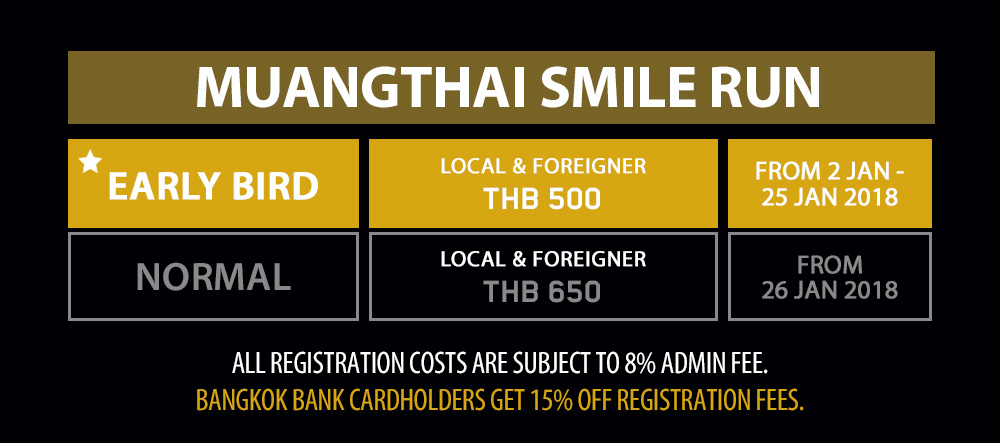
GROUP REGISTRATION สมัครแบบกลุ่ม (10 คนขึ้นไป)
If you would like to purchase more than 10 entries for the Amazing Thailand Bangkok Marathon, please contact us at thailandmarathon@ironman.com.
หากท่านต้องการสมัครเป็นกลุ่ม/ชมรม/สโมสร ที่มีจำนวนมาก 10 คนขึ้นไป สามารถติดต่อทางเจ้าหน้าที่ของเรา เพื่ออำนวยความสะดวกด้านการลงทะเบียนสมัครแก่ท่าน กรุณาติดต่อทางอีเมล์ที่ thailandmarathon@ironman.com
Be a volunteer at the Amazing Thailand Marathon Bangkok 2018!
As a Volunteer, you will enjoy the following entitlements**
- An exciting and memorable experience as a part of the Amazing Thailand Marathon Bangkok 2018
- Limited Edition Volunteer T-shirt
- Transport/F&B Allowance
- Electronic Certificate of Participation (TBC)
**The above entitlements are not applicable to all volunteers.
Race Entry Pack Collection
You will be assisting in packing and distribution of race pack to participants at Race Entry Pack Collection.
ROLES
- Counter Team
- Information Team
- Courtesy Team
Race Day
You will be part of the race and assisting the event organizer in managing different functional areas on Race Day.
ROLES
- Aid Station Team
- Information Team
- Athlete Welfare Team
- Baggage Team
- Finish Point Team
- Route Marshal Team
- Race Village Team
- Start Point Team
- Volunteer Welfare Team
Race Entry Pack Collection
Date: 01 February – 03 February 2018 (Thursday to Saturday)
Time: 12pm – 8pm Thursday 1st February
10am – 8pm Friday 2nd February
10am – 6pm Saturday 3rd February
Venue: Airport Rail Link – Makkasan Station
All participants will receive a Race Entry Pack with the following items:
- Running Singlet
- Personalised race bib pack containing:
- Timing device (not applicable to Family Fun Run participants)
- Race bib
- Goodies from our sponsors
Important Information for ALL Participants
- All participants (including overseas participants residing outside of Thailand) must collect their race entry pack during the REPC period.
- For self-collection, please bring along:
- Registration confirmation slip (check your registration and retrieve your registration confirmation email here)
- Citizen ID Card/Passport/Photo ID (for runners in all adult race categories)
- Participants who are unable to collect their Race Entry Packs during the REPC collection dates may authorise representatives to collect them on their behalf. All authorised representatives are required to produce the following documentation upon collection:
- Letter of authorisation (To be released at a later date) filled up
- Registration confirmation slip
- Citizen ID Card/Passport/Photo ID
- A photocopy of the runner’s Citizen ID Card/Passport/Photo ID (for runners in all adult race categories)
- A maximum number of 4 Race Packs can be collected per collection.
- Size Selection of Running Apparel made during registration is final. No exchange can be made once registration is completed.
Join Our Exhibitors
Interested to be an Exhibitor at the Amazing Thailand Marathon Bangkok 2018 Expo?
The Sports and Lifestyle Expo at the Amazing Thailand Marathon Bangkok 2018 is now accepting reservations for the Exhibition spaces. Email us at thailandmarathon@ironman.com now for more enquiries to get your brand in front of sports enthusiasts!
PRIZE MONEY
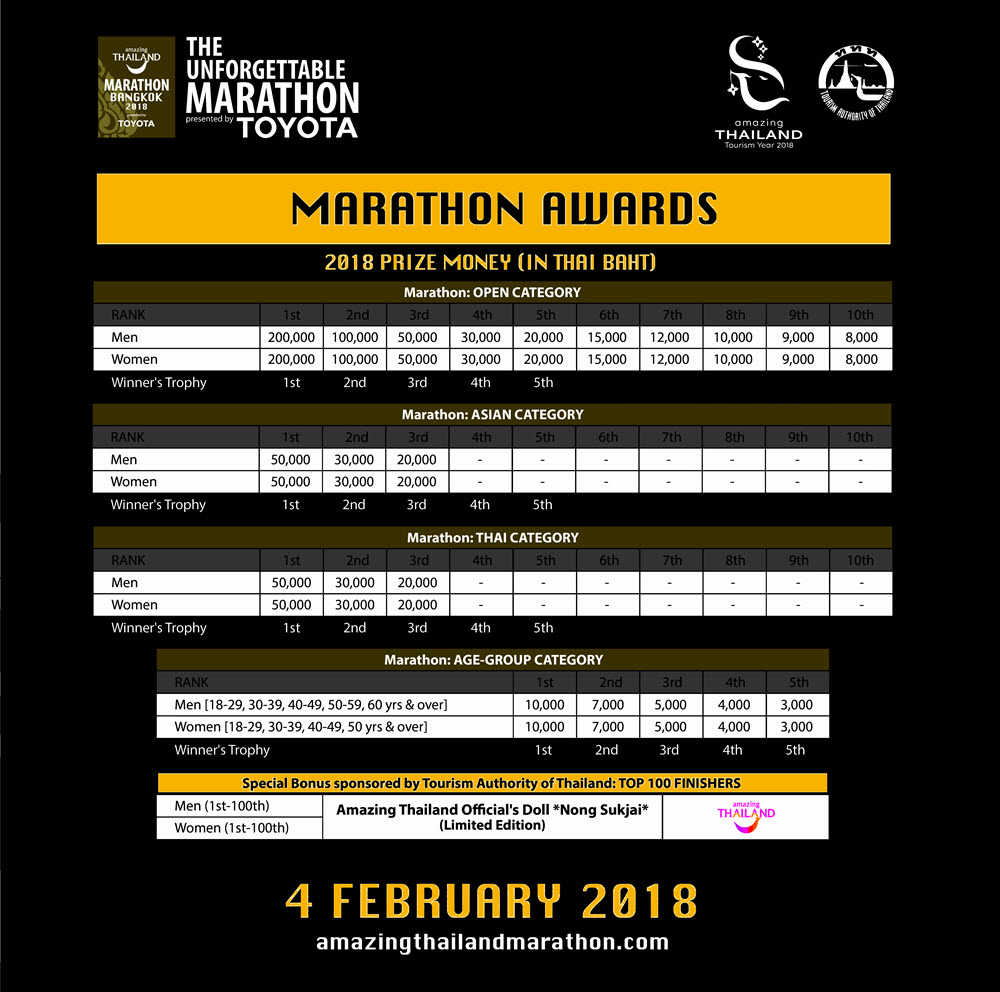
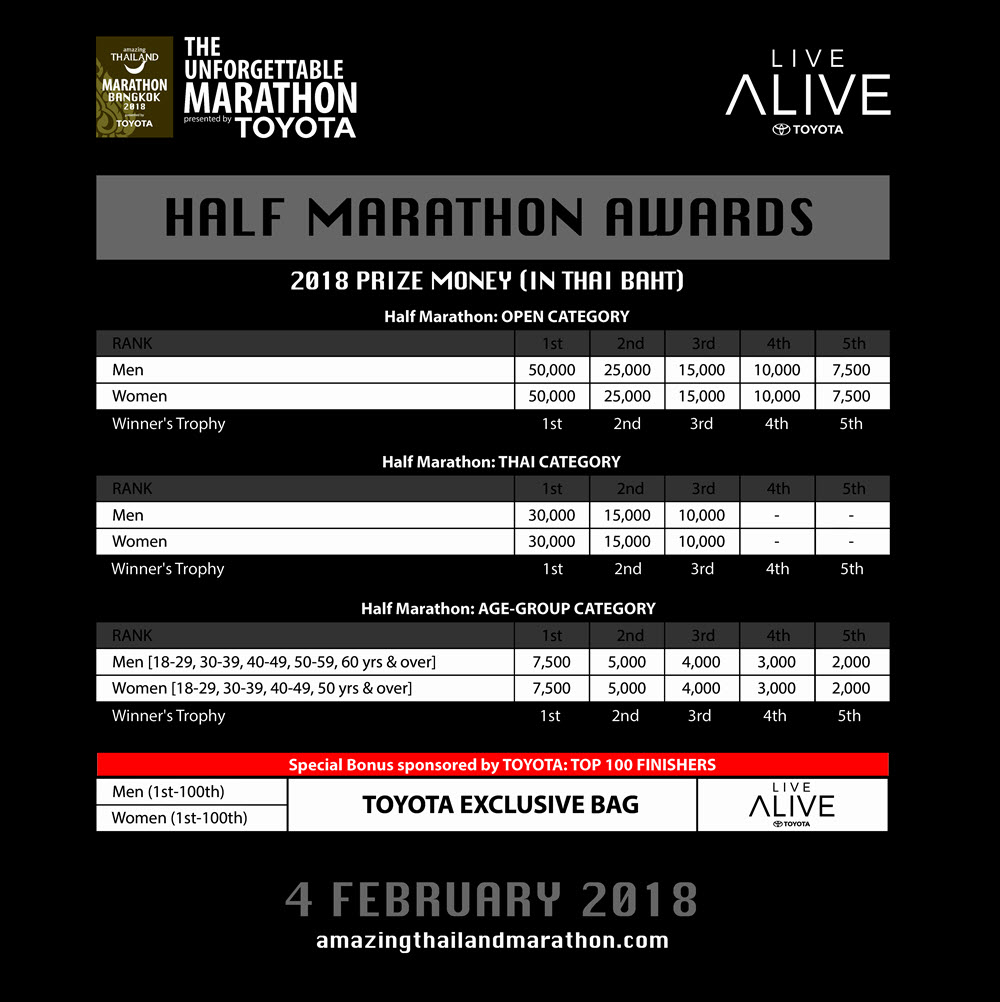
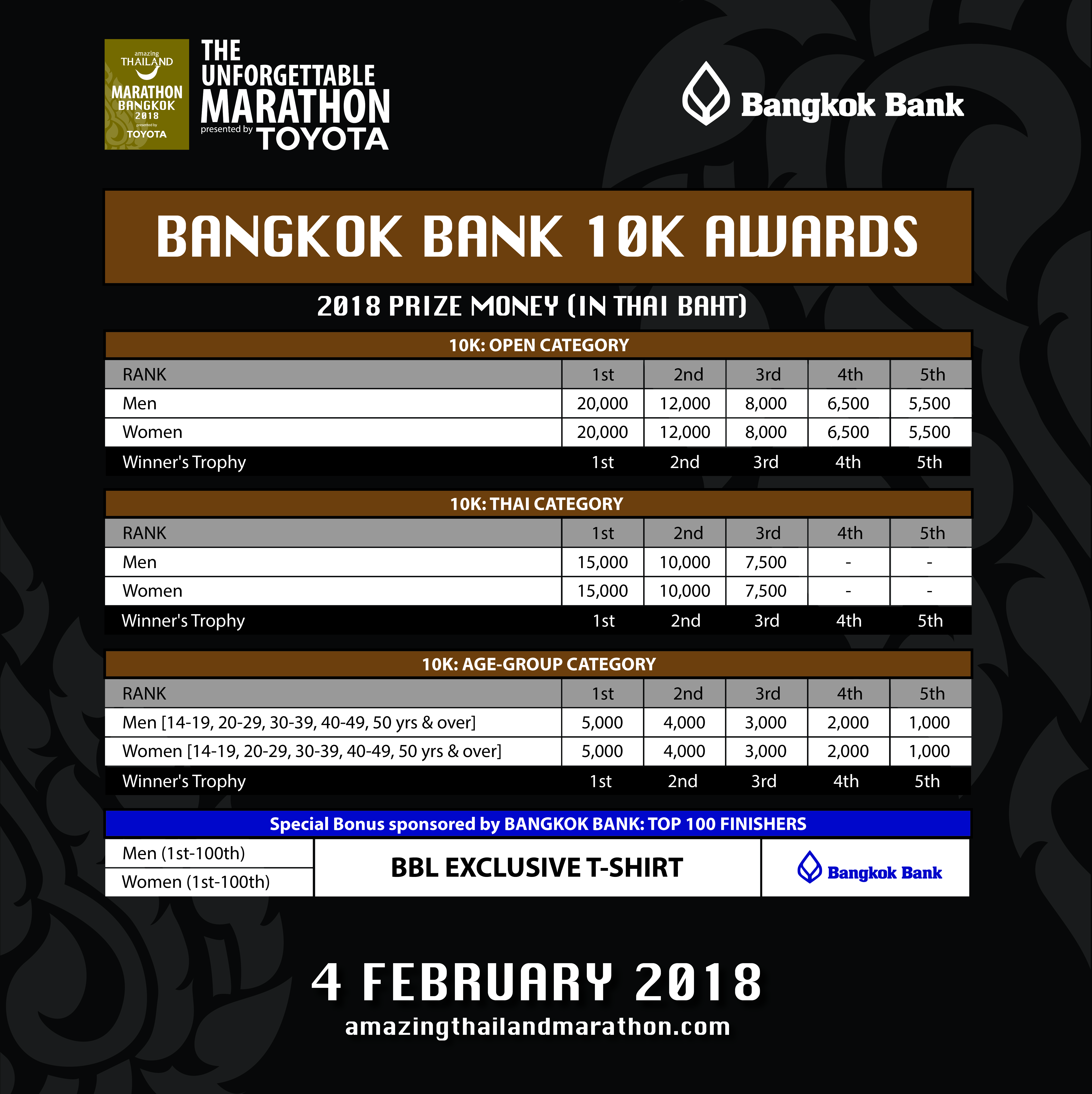
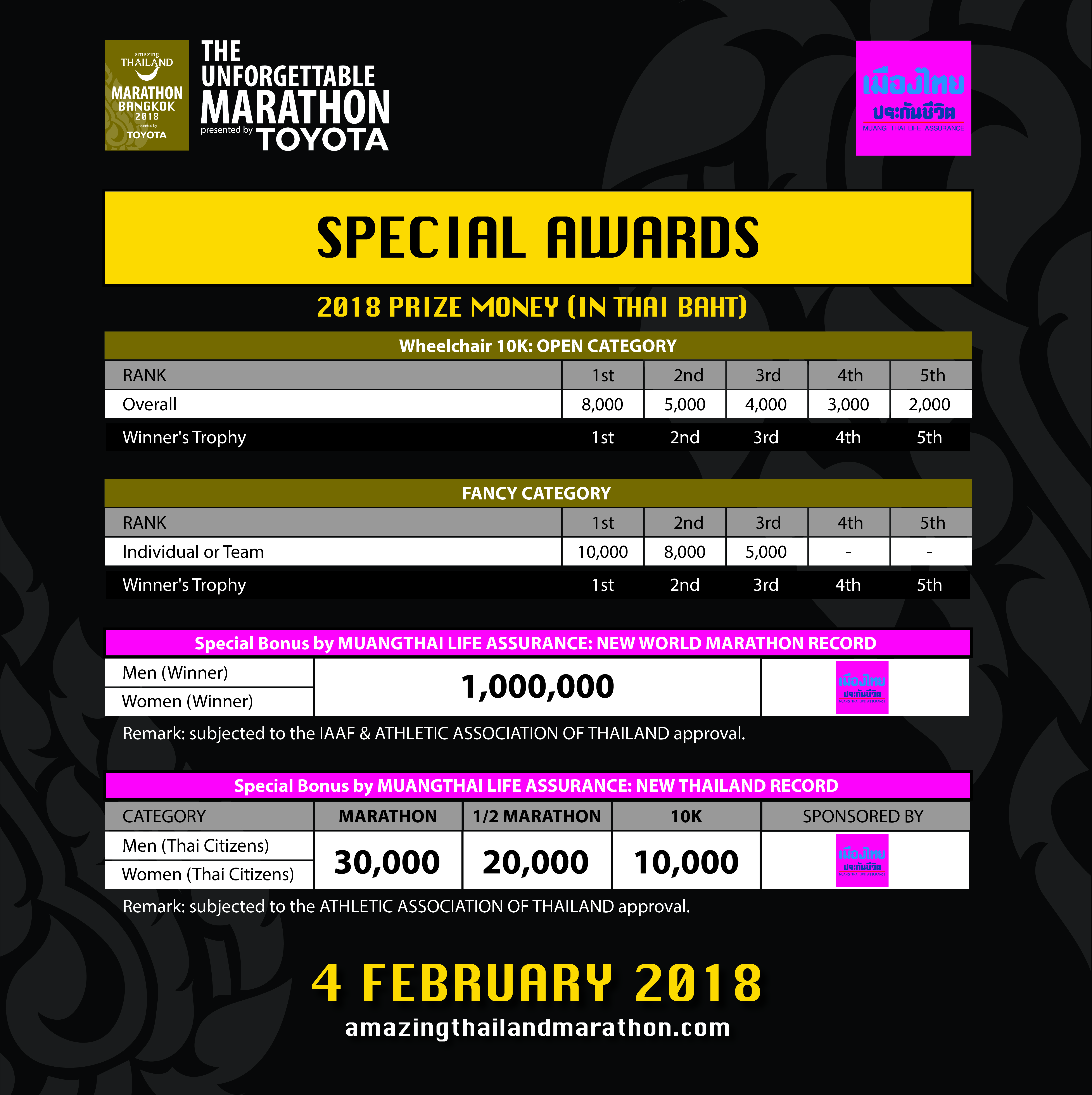
BE PREPARED FOR YOUR RACE
There’s no doubt that running is good for you, but every now and then you might feel a twinge or pick up a common injury like a blister or shin splints.
Check out the recommendations below to learn how to stay healthy and prevent injury – and if you do pick up a problem, find out how to identify and treat some of the most common running injuries. For further help, consult a doctor.
On this page you will find medical information and advice about running the Amazing Thailand Marathon Bangkok. Please read this advice carefully – we want you to enjoy your big day as safely and comfortably as possible! It is YOUR responsibility to be fit and well on the day of the marathon in order to enjoy the experience and not put yourself at risk.
Medical recommendations
Discuss any medical problems with your General Practitioner (GP). This advice supplements anything he or she says. See your GP if you have a problem that makes it a risk to run in a road race.
Blackouts
If you have a medical problem that may lead to you having a blackout, such as fits or diabetes, please write the details, especially your medication, on the reverse of your bib.
Fit to compete
Running is good for the heart and millions of runners have successfully completed Marathons around the world, but there have been medical emergencies from serious heart disease in runners apparently unaware that they had a problem. Their condition could have been detected if they had sought medical advice and the relevant heart tests. A ‘fitness test’ is not sufficient to detect these kinds of problems. If you have a family history of heart disease or sudden death, or have a high risk from high cholesterol or high blood pressure, but particularly if you have symptoms of heart disease; ie chest pain or discomfort on exertion, sudden shortness of breath or rapid palpitations – please see your GP who can arrange for you to have a proper cardiac assessment.
Training
Muscular aches and pains occur most commonly after an increase in training. Training should be increased gradually so that you do not suffer prolonged exhaustion – seek advice from professional trainers and get a training programme. Separate days of heavy mileage with one or two days of lighter training, or rest days so that your body can refuel your muscles with muscle glycogen are recommended. To reduce injury risk, vary your training runs, the running surface (parkland or hills), the pace and distance and do not always use the same pair of shoes. Always run facing oncoming traffic and be visible – at night wear bright or reflective clothing.
Illness and training
If you have flu, a feverish cold or a tummy bug, do not train until you have fully recovered. Then start gently and build up gradually. Do not attempt to catch up on lost mileage after illness or injury — this may cause further damage or illness. If you have flu it can take as much as a month to recover, so consider whether you should run the marathon this time. Note: if you cannot run 24 kilometers comfortably one month before a marathon, you will not manage it in safety or enjoy it. Please do not run on this occasion.
Drinking
Fluid lost in sweat must be replaced otherwise your body becomes dehydrated (short of water) and less efficient. Alcoholic drinks, tea and coffee are dehydrating. Take plenty of non-alcoholic drinks, especially in hot weather. Drink enough to keep your urine a pale straw colour. Drink plenty of liquids after training, especially long runs, and practise drinking during longer training runs. Drinking on the run needs practice. Drink plenty of fluids but preferably no alcohol in the two days leading up to the race. Do not drink excessively just before the race, during the race or gulp water after the race as you may get hyponatraemia.
Drinking on the day
Start the race well hydrated and if you are not already bursting, drink a cup of water or sports drink in the half hour before the start. Do not be greedy and take extra bottles of drinking water to pour over yourself as you may be depriving slower runners of much needed drinks. Mist cooling zones will be set up on the course – use these to cool yourself.
Drinking safely
Drinking too little can lead to problems, as you need to replace some of the fluid you lose as sweat. Drinking too much can also be very dangerous and lead to hyponatraemia (water intoxication), fits and even death. Drink only when you feel the need and do not gulp large volumes of fluids before, during or after the race. Your needs vary with your build, your speed and above all the weather. Faster runners (under 3:30) on a warm day may need as much as a litre of fluid per hour. Slower runners should not drink more than 500ml of fluid per hour. There are frequent Aid Stations so you do not need to drink at every one, just swallow a mouthful of water occasionally. If you’ve trained successfully with isotonic drinks and energy gels, have that as well but be considerate on the quantity as too much sugar intake may cause nausea. After the finish do not drink large amounts of water. It can be quite normal to not pass urine for several hours after a marathon. You can only re-hydrate (replace lost fluids) gradually over the next 24 to 48 hours. Try to eat some food as well as spacing out your drinks. This way you will not get hyponatraemia and will still replace the water, salt and glycogen lost in running the marathon.
Eating
Large doses of supplementary vitamins and minerals (such as iron) are not essential and produce no benefit if you are on a good mixed diet, but taking additional vitamin C in small doses is reasonable when fresh fruit and vegetables are in short supply. Training (with adequate rest) helps you to sustain a high level of muscle glycogen if you eat enough carbohydrate. If you can, eat within two hours of your long runs. This helps to rapidly replace the muscle glycogen and hastens recovery. Do not change your normal diet drastically in the last week before a marathon, but eat less protein (meat) and eat more carbohydrate (pasta, bread, potatoes, cereals, rice and sweet things), especially for the last three days when you should also be markedly reducing your training. This loads the muscles with glycogen and delays or prevents you from ‘hitting the wall’. Unless you reduce your protein intake you will not be able to eat enough carbohydrate. Not all runners are helped by first depleting carbohydrate levels with a long run and low carbohydrate diet and then loading as this can make your muscles feel very heavy.
Still fit?
Do not run if you feel unwell or have just been unwell. Most medical emergencies occur in people who have been unwell but do not wish to miss the event. If you feel feverish, have been vomiting, have had severe diarrhea or any chest pains, or otherwise feel unwell, it is unfair to you, your friends and your family to risk serious illness and become a medical emergency. You are unlikely to do yourself justice. Even if you make it to the finish, you’re unlikely to enjoy the day or give your best performance. There are many other marathons. Seek medical advice before the race and if you feel ill on race day it’s important to withdraw from the race or downgrade your running category.
On the day
Wear appropriate clothes for the weather. Bangkok is hot, wear loose mesh clothing, start slowly and, if possible, run in the shade. Use shoes you know from experience will not give you blisters.
At the finish
Once you have completed the Amazing Thailand Marathon Bangkok, do not stand about. Make sure to keep walking, especially if you feel dizzy, and gradually drink enough fluid to replace lost liquid. Get your kit and change into clean, dry clothing. Keep on drinking slowly and have something to eat. Some runners feel faint more than half an hour after finishing a race, often because they have taken insufficient fluid and/or not eaten anything. Again, do not drink excessively.
Think before you drink
Adequate preparation for a marathon requires appropriate nutrition, hydration and rest. Athletes often consume isotonic, carbohydrate and protein drinks as well as energy gels and bars purchased in sports and health food shops in preparation for the event, which is considered safe practice. It is important for you to train with the same products you will have on race day, do not try out a new product on race day.
However, over the last two decades there have been an increasing number of commercially available compounds that claim to enhance performance. Some have been found to contain substances banned in other countries and other products (such as steroids) that are banned for use among competitive athletes. Such products are usually purchased via the internet and should not be used by anybody training for a sports event like the marathon. Runners using performance-enhancing compounds that have not been licensed and regulated properly may experience serious side effects and increase their risk of developing heart disturbances that culminate in sudden death.
There have been well-publicised cases of runners inadvertently using compounds in an attempt to help them fight fatigue during endurance events and this caused detrimental effects on their health, resulting in their death. In one recent case toxicology identified traces of DMAA, which is an amphetamine-like substance. Although banned in sport, the product was legally available at the time and advertised as a powerful performance enhancing agent and the warnings associated with the potential harmful ingredients were not highlighted on the product. Runners should avoid consuming unregulated substances bought online.
The Amazing Thailand Marathon Bangkok has many Aid Stations to ease congestion and allow access for the 30,000 expected runners. You do NOT need to drink at every water or Aid Station. THINK before you DRINK.
FIVE TIPS FOR RUNNING IN THE HEAT
Hot weather is a real challenge when you’re running in Bangkok especially if you are training abroad and not used to Thailand climate. Follow our top five tips to help you keep cool.
Dress appropriately
Make sure you are wearing lightly coloured and loose-fitting running gear. Pale colours reflect the sun’s rays better and baggy clothes help take advantage of any breeze, including the one you make yourself by running. Technical t-shirts can allow sweat to pass through them and evaporate, which keeps your core temperature lower. Sunglasses and waterproof sunscreen are a necessity, while a hat or visor to protect your face is also a good idea. Don’t go for a tight-fitting hat or one made from thick material though, as it is important to lose heat through your head.
Get your timing right
When training in the heat, you should avoid running between midday and 15:00 when the sun is at its strongest. The air quality is also at its best in the morning, making this an ideal time to run. Sticking to routes that provide a lot of shade can make a difference too.
Keep hydrated
If you’re running for 45 minutes or less, drinking water alone is fine. But if you’re going for longer, and especially for marathon distances, you should ideally consume around 235ml of sports drink every 20 minutes to help maintain electrolyte levels and refuel your muscles. Even if you don’t feel thirsty, drink at least 225ml of fluid each hour. You should be hydrated ahead of your run too, drinking 450ml of water two hours before you start will ensure you’re well set. Work out the easiest way for you to carry bottles while you’re out and about, whether that be in a bag, a holster, or simply in your hand. Different people prefer different methods but there is always a way. Avoid drinks with caffeine and alcohol before runs as they increase urine output which can make you even more dehydrated.
Start slowly and know when to stop
When the sun is beating down, it’s particularly beneficial to start your run a bit slower than usual. If you normally run at 5min/km pace, try to run at 6min/km – it will take you longer to overheat. If you feel you’re becoming too hot, know when to stop as heat-induced illness can be serious. Headaches, confusion, loss of muscular control, hot and cold flushes, over-sweating, clammy skin and an upset stomach are all signs of impending heat illness. If you feel any of these, seek shade, drink and try and get yourself a ride home.
Make use of water
If you’re training in the heat, try to choose a route that passes near water. It is usually cooler and breezier near water so running alongside it can help keep your core temperature down. Whether you run next to a river, stream, lake or even the sea, the lower temperature should make you feel a lot less tired. Finishing your run with a brief swim can also be a good way to cool down quickly on a hot day.
ABOUT THAILAND
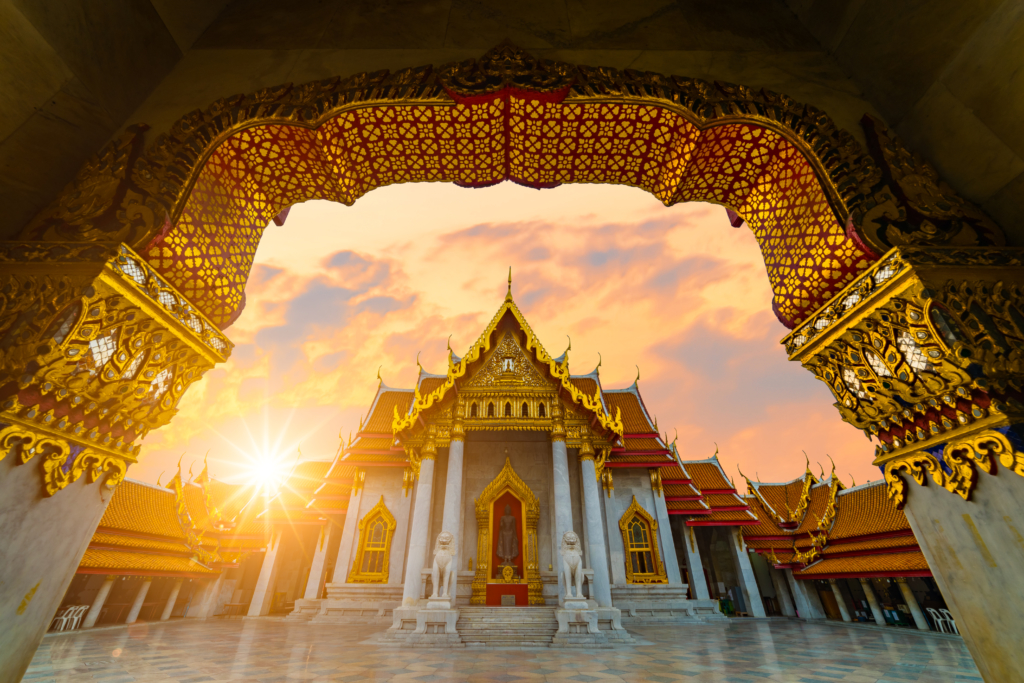
Photo credits: Tourism Authority of Thailand
Thailand is a wondrous kingdom, featuring Buddhist temples, exotic wildlife, and spectacular islands. Along with a fascinating history and a unique culture that includes delectable Thai food and massage, Thailand features a modern capital city, a pastoral countryside, and friendly people who epitomize Thailand’s “land of smiles” reputation.
To find out more about Bangkok, Thailand for your Marathon’s itinerary, visit https://tourismthailand.org/
MAIN SPONSORS ผู้สนับสนุนหลัก
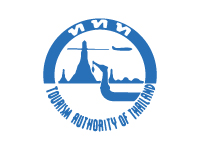
Tourism Authority of Thailand
In Support of Sports Promotion
An organization called the Tourism of Thailand was founded by Prince Purachara Jayakara, the Prince of Kamphaengphet. When sitting as a train commander, the prince sent stories about Thailand to get published in the USA. In 1924, he set up an advertising department for the State Railway of Thailand to help tourists who visited Thailand and promote Thailand among foreigners. The office was originally at the State Railway of Thailand but was later moved to Hua Lamphong Railway Station. Subsequently after Prince Purachara Jayakara went to work for the Ministry of Commerce and Transport, the office also moved there but it was still working closely with the State Railway of Thailand.
https://www.tourismthailand.org/

Toyota Motor Thailand
Title Sponsor
Toyota Motor (Thailand) has exceeded all of our goals in becoming one of the key contributors to Toyota worldwide, and Thailand’s number one automobile manufacturer, however we remain as committed as ever to continue growing well into the future on the successes of our world class products and services. With a production capacity of 550,000 vehicles per year, Toyota Motor (Thailand) is proud to offer quality Toyota products to domestic and international customers, and has become the largest automobile manufacturer in Thailand and one of the world leader.
https://www.toyota.co.th/
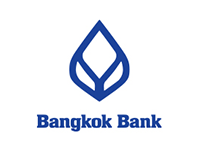
Bangkok Bank
10K Sponsor
Bangkok Bank Public Company Limited is one of leading regional banks. Established in 1944 and listed on the Stock Exchange of Thailand since 1975, it has assets of approximately USD 80 billion, or Baht 2,836 billion (as at December 31, 2016). It is Thailand’s market leader in corporate and SME banking, with a customer base of approximately 18 million accounts. In addition to a nationwide domestic branch network of more than 1,000 branches, international network with 32 overseas locations in 15 economies, including self-service outlets.
ธนาคารกรุงเทพ จำกัด (มหาชน) เป็นหนึ่งในธนาคารพาณิชย์ชั้นนำของภูมิภาค ก่อตั้งขึ้นในปี พ.ศ. 2487 และได้เข้าจดทะเบียนในตลาดหลักทรัพย์แห่งประเทศไทยในปี พ.ศ. 2518 โดยมีมูลค่าทรัพย์สินราว 8 หมื่นล้านดอลลาร์ หรือราว 2.9 ล้านล้านบาท (ข้อมูลประจำวันที่ 31 ธันวาคม 2559) ธนาคารกรุงเทพเป็นผู้นำในภาคการธนาคารไทยสำหรับกลุ่มลูกค้าธุรกิจและกลุ่ม SME มีฐานลูกค้าราว 18 ล้านบัญชี มีสาขาในประเทศกว่า 1,000 แห่ง และเครือข่ายสาขาต่างประเทศ 32 แห่ง ใน 15 เขตเศรษฐกิจ รวมถึงเครือข่ายธนาคารอัตโนมัติ
http://www.bangkokbank.com/
OFFICIAL SPONSORS & PARTNERS ผู้ร่วมสนับสนุน
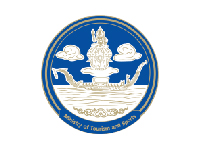
Ministry of Tourism and Sports
Ministry of Tourism and Sports was established according to the Reorganization of Ministries Act, B.E. 2545, division 5 according to section 14 which determines that Ministry of Tourism and Sports shall have the authority relating to promoting and developing tourism, sports, education, recreation industries, and other government services as prescribed by the law
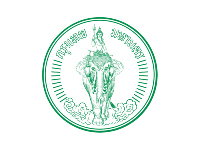
Bangkok Metropolitan
Bangkok, Located in the heart of Southeast Asia is among the world’s top tourist destinations. The city is a true paradise. Bangkok welcomes visitors by its historical attractions. Temples with meticulous architecture and art. Museums, parks, and a big array of shopping places, from luxury malls to flea markets.
It is very convenient to hop around Bangkok, as the city offers a selection of transport. From Taxi, Bus, Sky train or long-tail boat to the famous Tuk Tuk.
Food is another Bangkok highlight, from street food to fine dining. Bangkok vibrant nightlife scene are also highlights that has attracted many tourists from all over the world.
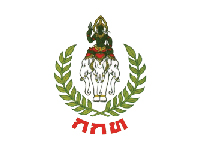
Sports Authority of Thailand
The Sports Authority of Thailand (SAT) is the principal office that drives excellence in sport and provides Thai professional athletes with the right opportunities to become the best in Asia. Its mission is to implement policies, direct and regulate sport in Thailand. The SAT also provides advice and support facilities and service in sporting excellence in Thailand.
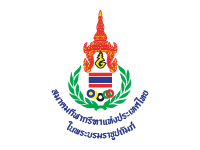
Athletics Association of Thailand
Amazing Thailand Marathon Bangkok is Sanctioned by Athletics Association of Thailand
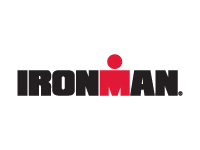
IRONMAN
Event Organizer
A Wanda Sports Holdings company, IRONMAN operates a global portfolio of events that includes the IRONMAN® Triathlon Series, the IRONMAN® 70.3® Triathlon Series, 5150™ Triathlon Series, the Rock n’ Roll Marathon Series®, Iron Girl®, IRONKIDS®, International Triathlon Union World Triathlon Series races, road cycling events including the UCI Velothon® Series, mountain bike races including the Absa Cape Epic®, premier marathons including the Standard Chartered Singapore Marathon, and other multisport races. IRONMAN’s events, together with all other Wanda Sports Holdings events, provide more than a million participants annually the benefits of endurance sports through the company’s vast offerings. The iconic IRONMAN® Series of events is the largest participation sports platform in the world. Since the inception of the IRONMAN® brand in 1978, athletes have proven that ANYTHING IS POSSIBLE® by crossing finish lines at the world’s most challenging endurance races. Beginning as a single race, IRONMAN has grown to become a global sensation with more than 200 events across 50 countries.
For more information, visit www.ironman.com.
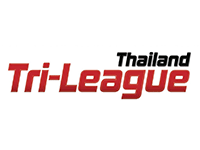
Thailand Tri-League
Event Promoter
In 2015 Thailand Tri-League was established as a sport event organizer with the athletic sprit to create memorable races all throughout Thailand. The goal is to raise the standard of such events to a new level. With the growth in popularity of Triathlons in the Asia-Pacific region. Thailand is a new hub for triathlon racing. Thailand Tri-League has three major Triathlon races each year: Bangsaen Tri, Pattaya Tri and Sattahip Tri. The organizer also creates a number of marathon races such as Pattaya Marathon.
Thailand Tri-League has raised the bar for sporting events and will continue to create remarkable experiences for participants.
To find more about Thailand Tri-League. Visit http://www.thailandtrileague.com

Run Society
Official Online Media
RunSociety is a trusted and authoritative Asia’s leading online running magazine founded in 2011 with the mission of bringing the most complete inspiration and latest information in the running industry to its audiences. Bringing extensive coverage across the globe from over 50 countries, RunSociety is the premier go-to destination for anyone who runs, advocates healthy living and somewhere in between.
For more information, visit www.runsociety.com
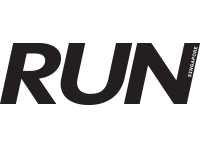
RUN Singapore
Official International Running Magazine
RUN Singapore aims to be a complete resource for leisure runners and marathoners of all ages and abilities. It features quality editorial that provides the latest news, information and expert advice to motivate them to run efficiently, train intelligently and lead a healthy, balanced life. It also covers all aspects of the running lifestyle including health and nutrition, travel, skincare and fashion.
